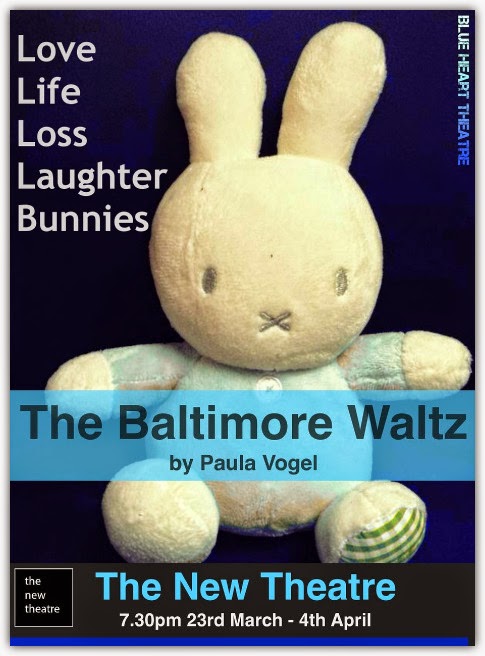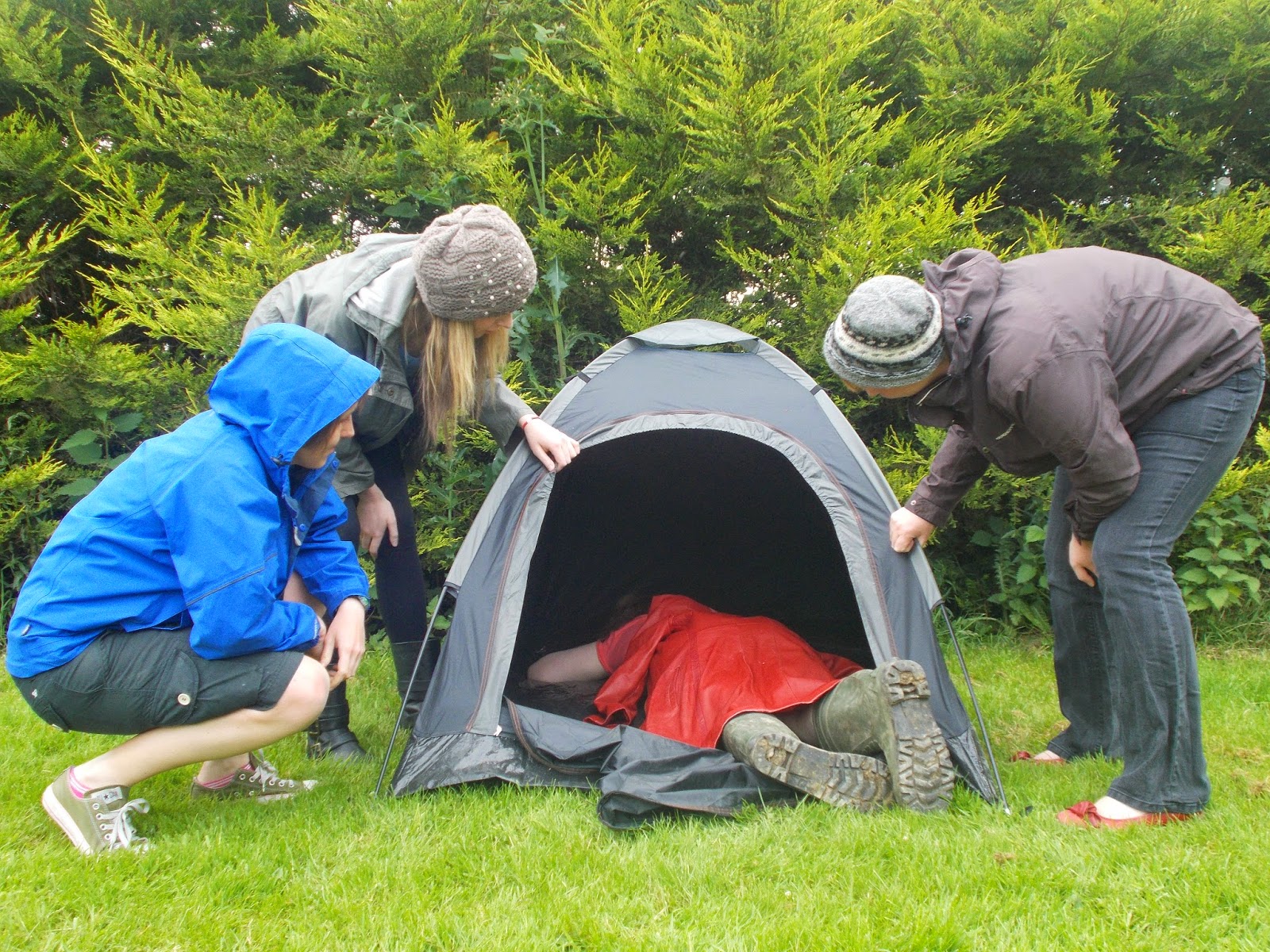There is poise and control as the well dressed woman walks in rolling an office chair in front of her. In the beginning it feels like she is conversing with us. As her story emerges, piece by piece, we realise that she is talking to a panel. The earlier sound of a large gate or door, sliding and locking back into position becomes clear. Through her words, as sparse as the setting itself, only a covered bench at the back of the black stage, she conjures up this past life, moving from her large family life in the country, to the headier heights of the racing enclosure with the women wearing high heels even thought they are walking on grass.
When her time is up, a different character emerges, pushing himself in on a similar chair, across the stage, revealing a more fidgety, worn looking man in a stained suit; very different from the elegance, even sophistication, of Tish, or Patricia. Harold seems more down at heel, but like Tish, he must tell his tale to the board - "or is it a panel?" - in his bid to be heard.
When her time is up, a different character emerges, pushing himself in on a similar chair, across the stage, revealing a more fidgety, worn looking man in a stained suit; very different from the elegance, even sophistication, of Tish, or Patricia. Harold seems more down at heel, but like Tish, he must tell his tale to the board - "or is it a panel?" - in his bid to be heard.
 Kevin O'Connor's play is very intriguing. Through the two monologues he tells life stories, and they are delivered very well from Deirdre Seaver and Jim Roche, both drawing us in and commanding our attention. Seaver's Tish is a delight, her wry comments, her re-telling of intimate moments with men shows her cooler, more business side in this pitch perfect performance. O'Connor's language feels natural for the different tales and characters, and as director, the choice to keep it all simple is so right. The pool of white light compresses their area down, letting them use a small space and focusing our attention onto them without distraction. There is a feeling of Talking Heads at play and perhaps leaving it like that would, in the end, have been best.
Kevin O'Connor's play is very intriguing. Through the two monologues he tells life stories, and they are delivered very well from Deirdre Seaver and Jim Roche, both drawing us in and commanding our attention. Seaver's Tish is a delight, her wry comments, her re-telling of intimate moments with men shows her cooler, more business side in this pitch perfect performance. O'Connor's language feels natural for the different tales and characters, and as director, the choice to keep it all simple is so right. The pool of white light compresses their area down, letting them use a small space and focusing our attention onto them without distraction. There is a feeling of Talking Heads at play and perhaps leaving it like that would, in the end, have been best. The coda to it all, so to speak, is an ending of sorts, in tying the two together it feels more like trying to square the circle. It may not have mattered in the end, as here, O'Connor, with Seaver and Roche, has created two intriguing creations, that can charm, and alarm, no matter how much Tish smiles out at us. Both actors give well rounded performances, and mine the comic and serious moments in the play very well.
Like Tish, there is style and grace to it all, with nothing forced, only maybe the final scene, and yet it has the rougher styling of Harold too. It is one that draws you in with its sense of mystery, slowly unveiling its stories. There is also a wonderful sense of calm, nothing urgent, that it will all come out in good time. And the wonderful thing is that it does in this unexpected delight.
Runs until March 14th 2015
Venue: The New Theatre, Dublin
Cast: Tish - Deirdre Seaver, Harold - Jim Roche
Writer and Director: Kevin O'Connor
Photos courtesy of The New Theatre
Photos courtesy of The New Theatre


















